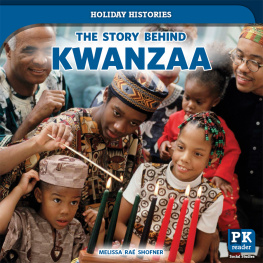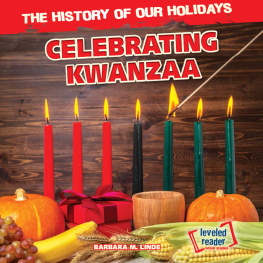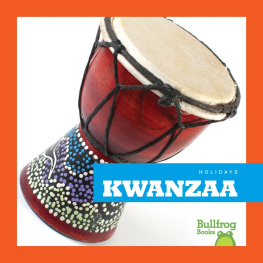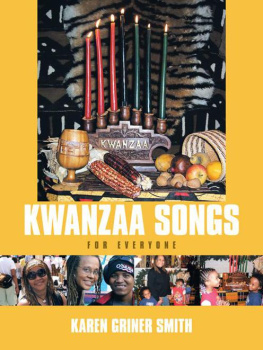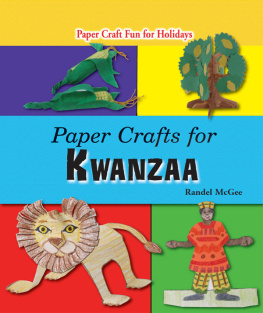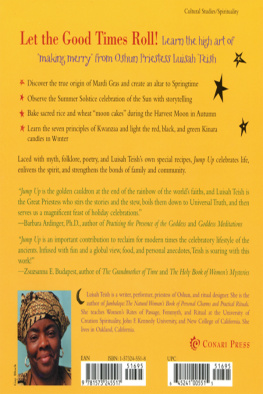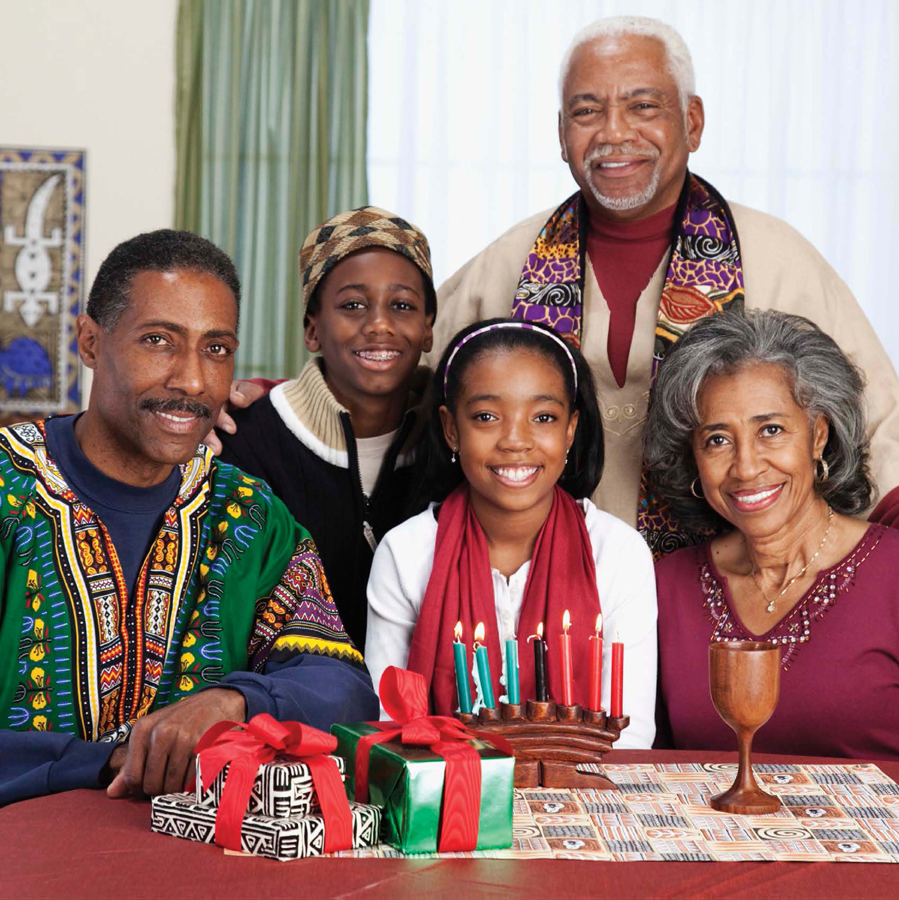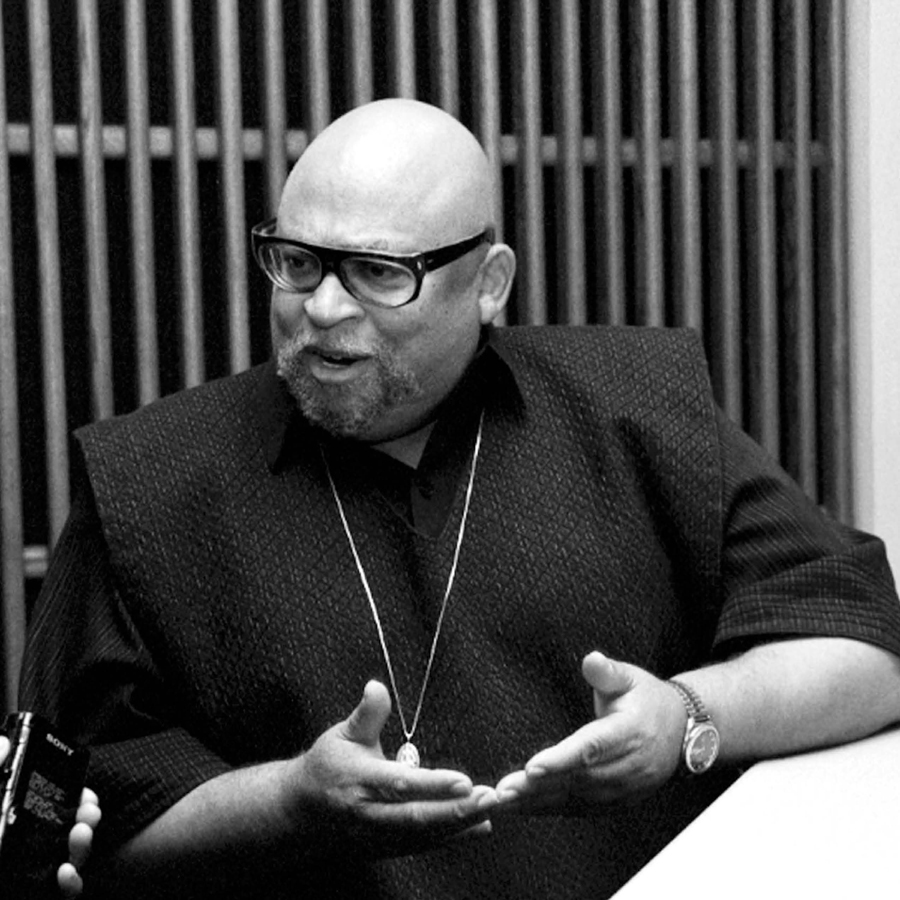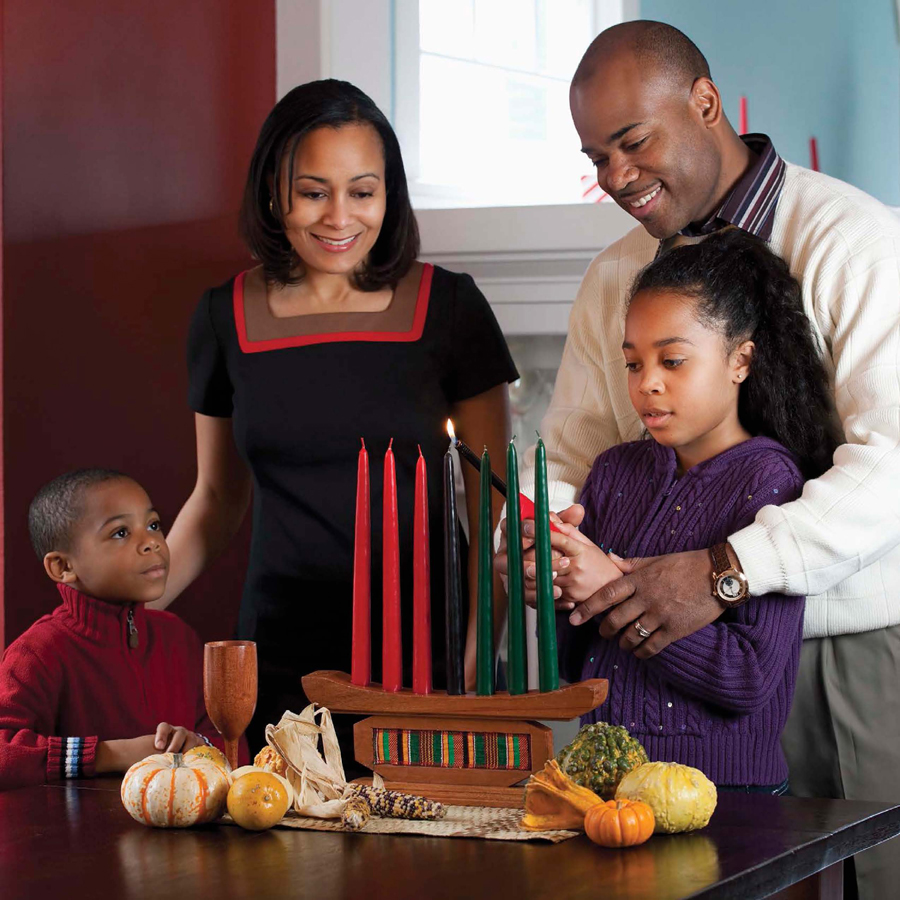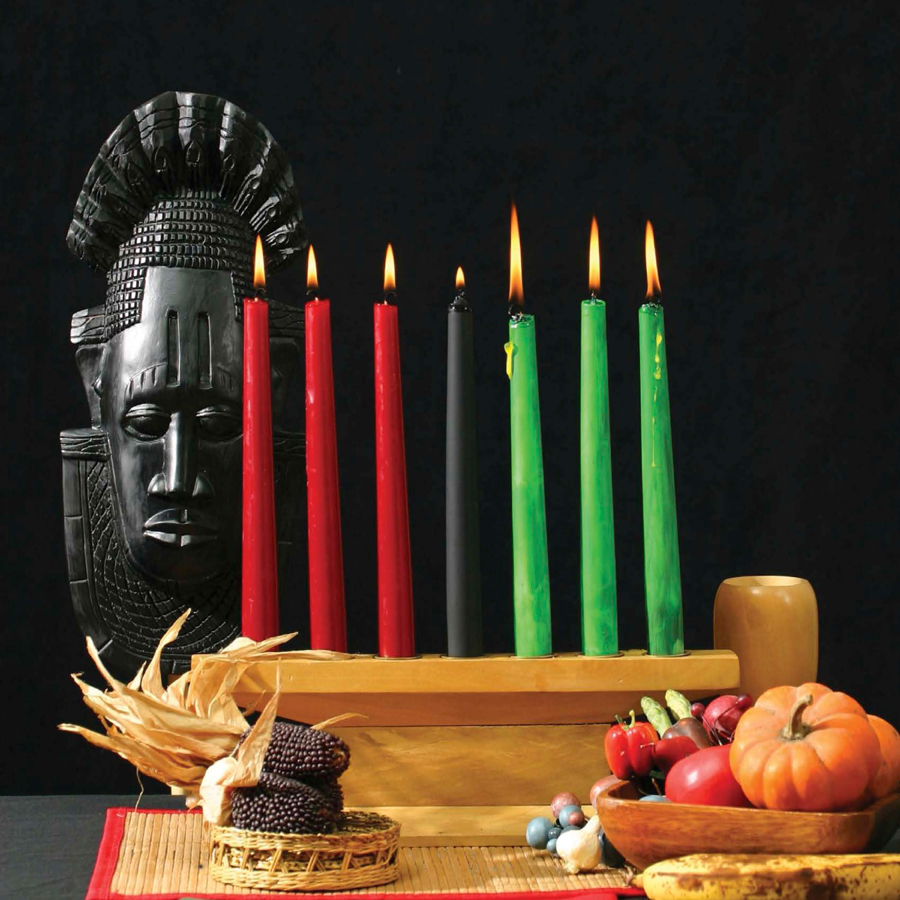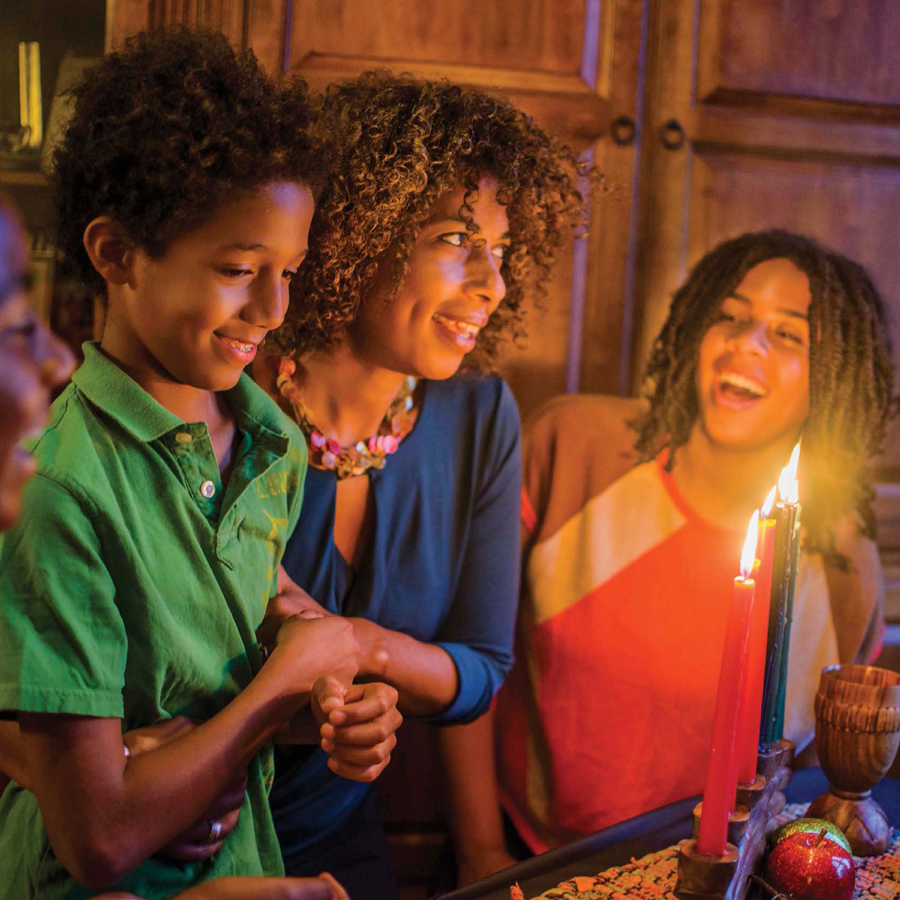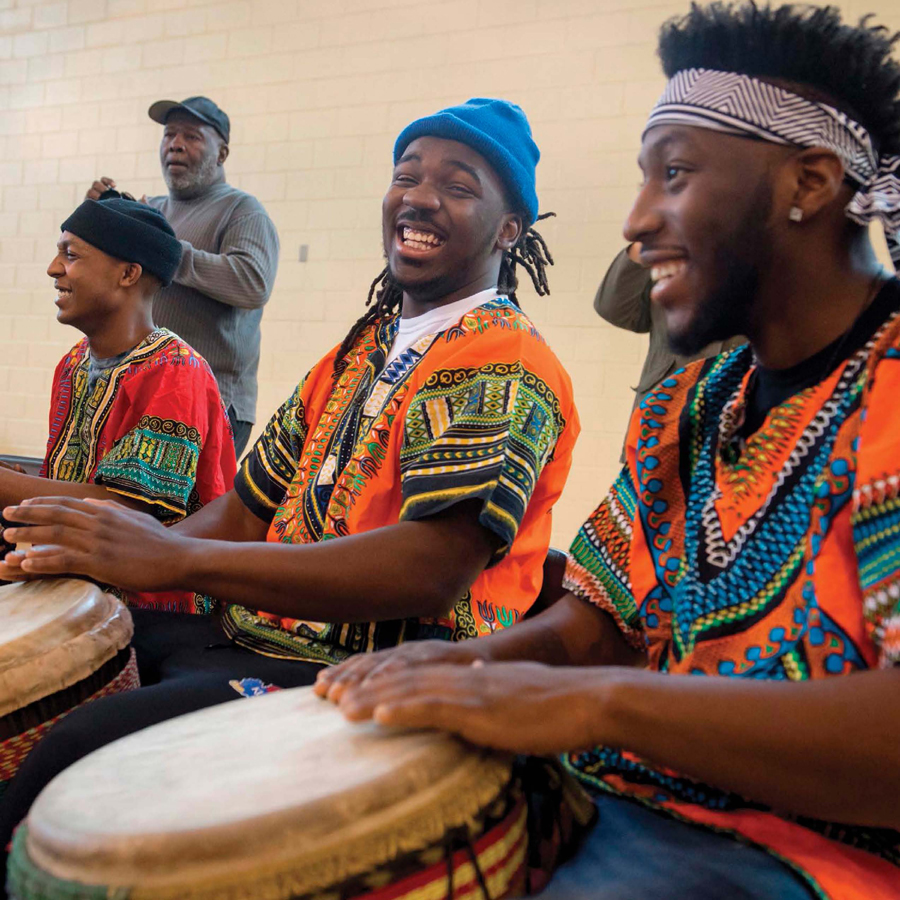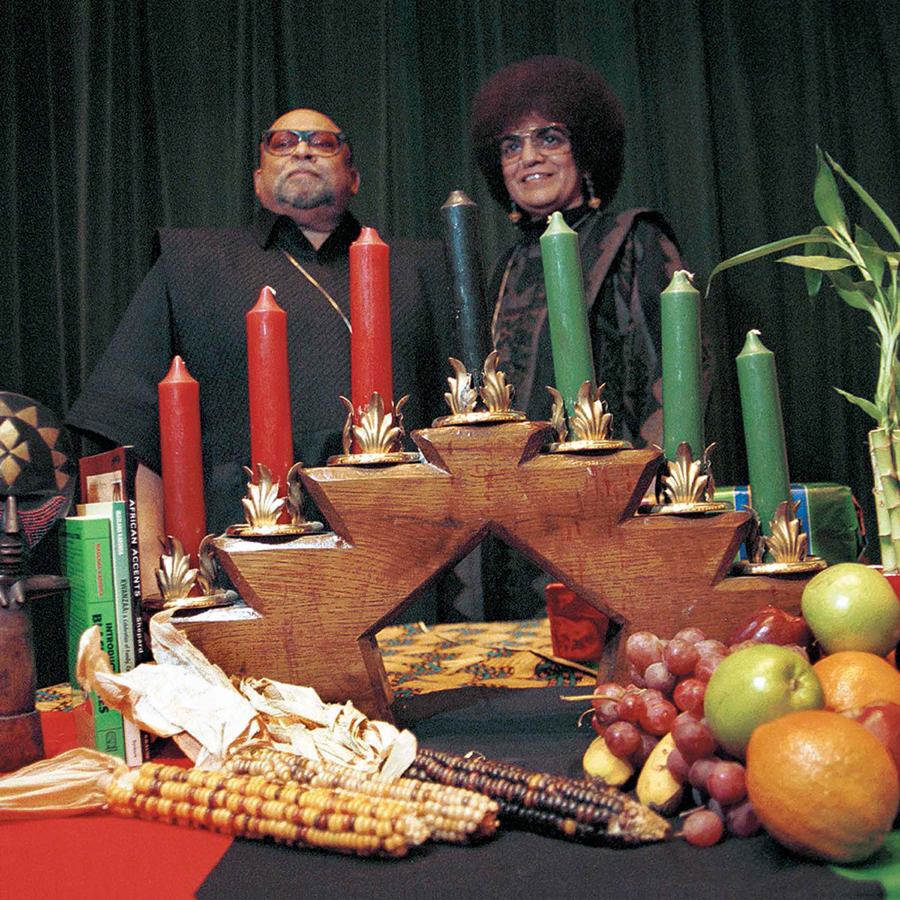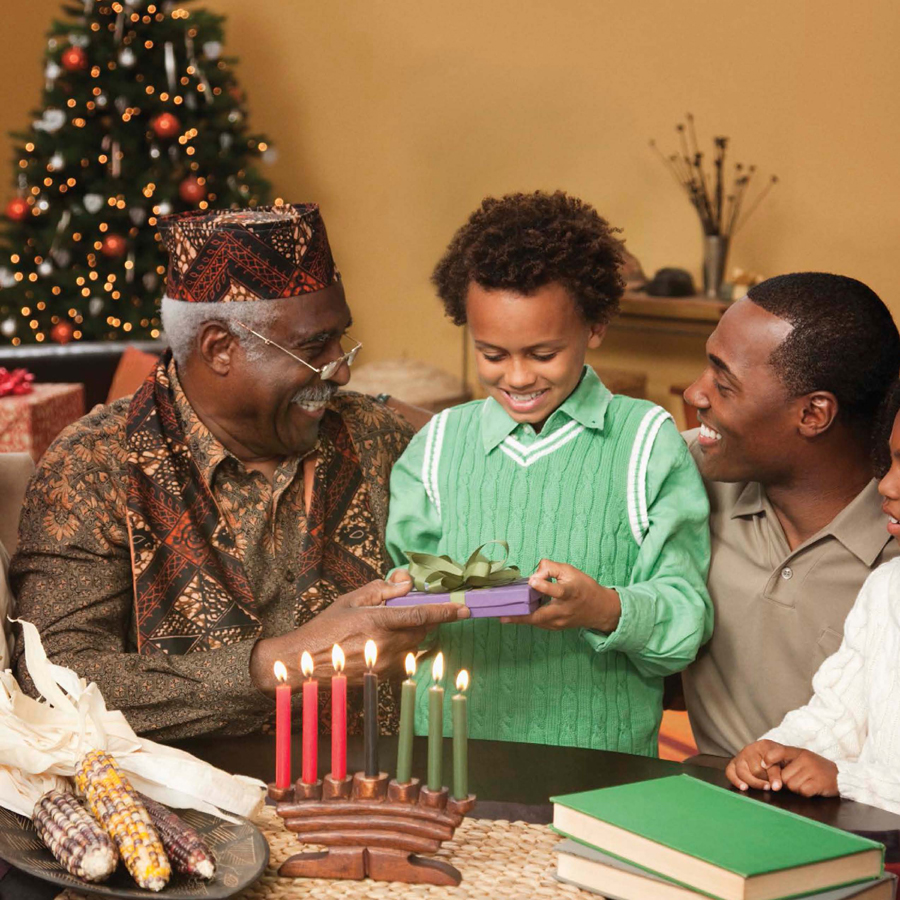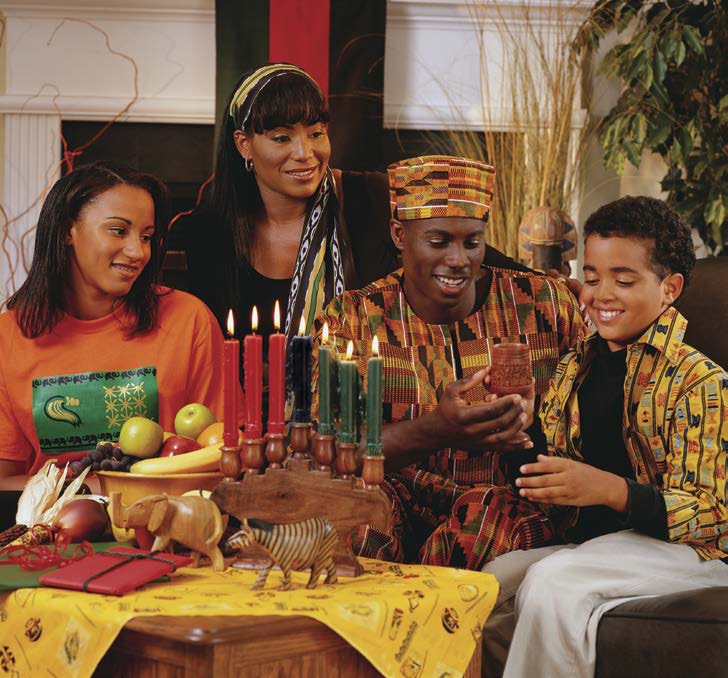Published in 2020 by The Rosen Publishing Group, Inc.
29 East 21st Street, New York, NY 10010
Copyright 2020 by The Rosen Publishing Group, Inc.
All rights reserved. No part of this book may be reproduced in any form without permission in writing from the publisher, except by a reviewer.
First Edition
Editor: Tanya Dellaccio
Book Design: Reann Nye
Photo Credits: Cover, p. 1 Purestock/Getty Images; pp. 4, 6, 8, 12, 14, 16, 18, 20, 22 (background) Preto Perola/Shutterstock.com; pp. 5, 21 Hill Street Studios/DigitalVision/Getty Images; pp. 7, 19 Robert Abbott Sengstacke/Archive Photos/Getty Images; p. 9 Inti St. Clair/Photodisc/Getty Images; p. 11 Timothy R. Nichols/ Shutterstock.com; p. 13 Sue Barr/Image Source/Getty Images; p. 15 Miami Herald/Tribune News Service/Getty Images; p. 17 SAUL LOEB/ AFP/Getty Images; p. 22 Guy Cali/Corbis/Getty Images.
Cataloging-in-Publication Data
Names: Shofner, Melissa Ra.
Title: The story behind Kwanzaa / Melissa Ra Shofner.
Description: New York : PowerKids Press, 2020. | Series: Holiday histories | Includes glossary and index.
Identifiers: ISBN 9781725300569 (pbk.) | ISBN 9781725300583 (library bound) | ISBN 9781725300576 (6pack)
Subjects: LCSH: Kwanzaa--Juvenile literature.
Classification: LCC GT4403.R43 2020 | DDC 394.2612--dc23
Manufactured in the United States of America
CPSIA Compliance Information: Batch #CSPK19. For Further Information contact Rosen Publishing, New York, New York at 1-800-237-9932.
Seven Special Days
Kwanzaa is a celebration of African American culture and history. People gather together to sing, dance, and eat. The holiday is seven days long. Each of the seven days stands for a different principle, or important value, in African culture. Its celebrated from December 26 to January 1.
Honoring Culture
Kwanzaa was first celebrated in 1966. A teacher named Dr. Maulana Karenga decided to create the holiday. He studied and taught African American history in California. African Americans have been discriminated against for a long time. Because of this, he wanted to celebrate their accomplishments.
A Mix of Traditions
The name Kwanzaa comes from words that mean first fruits in Swahili, a language spoken by some African peoples. The traditions of the holiday come from harvest celebrations from different African cultures. Dr. Karenga mixed them together to create Kwanzaa.
Seven Values
A candleholder called a kinara holds seven candlesone for each night of Kwanzaa. On the first day, a person celebrating lights a black candle. This symbolizes the first principleumoja, or unity. Families talk about how to be united as a family and a community.
Team Effort
The second days principle is kujichagulia, or self-determination. Families talk about how to speak up and work for themselves. The third day of Kwanzaa celebrates collective responsibility, or how to work as a team and help others solve their problems. This is also called ujima.
Continuing Success
The fourth principle is ujamaa, which means cooperative economics. This means African American communities creating and supporting businesses together. The fifth day honors purpose, or nia. Families talk about working together to build and support their communities.
Believing in Each Other
The sixth day of Kwanzaa celebrates kuumba, or creativity. People talk about how they can create a better world. The seventh and final day celebrates faith, or imani. This day is for believing in ones community and the people in it.
Seven Symbols
There also are seven symbols for Kwanzaa, including the kinara. Mazao, the fruits and vegetables eaten during the holiday, symbolize crops. The mkeka is a straw mat on which all of the other items are placed. It symbolizes tradition. Each child is symbolized by a vibunzi, or ear of corn.
The mishumaa saba are the seven candles that sit on the kinaraone black, three red, and three green. The kikomba cha umoja is a cup everyone drinks from. It symbolizes unity. Zawadi are gifts. Each person gets a gift, usually handmade, during Kwanzaa.
An Important Holiday
There are many different things that make Kwanzaa an important holiday. Families come together and talk about the seven principles and symbols. Each day, they learn and share more about their culture and community. During Kwanzaa, African Americans reflect on the past and make goals for the future.
GLOSSARY
accomplishment: Something done successfully.
celebration: A party or something special or enjoyable done for an important event or holiday.
culture: The beliefs and ways of life of a certain group of people.
discriminate: To treat someone differently than others.
harvest: Crops after theyve been gathered. Also the act of gathering crops.
reflect: To think about.
self-determination: The freedom to make your own choices.
symbolize: To stand for something else.
tradition: A way of thinking, behaving, or doing something thats been used by people in a particular society for a long time.
united:

